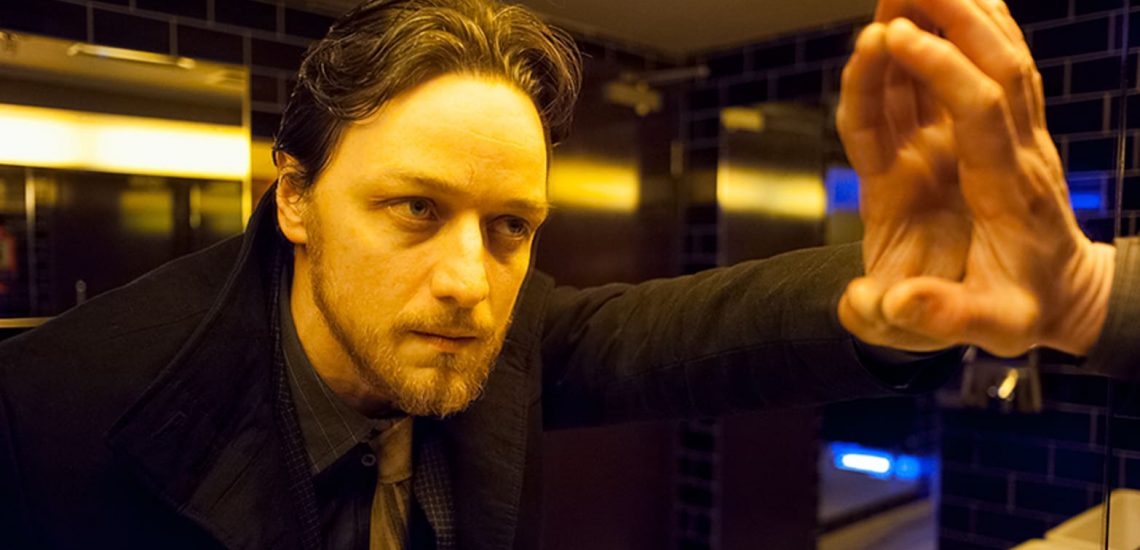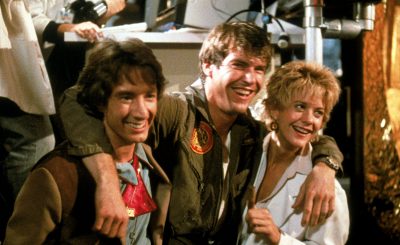Set against the backdrop of a dreary, crime-ridden area of Scotland, Filth follows scheming Detective Bruce Robertson (James McAvoy) as he tenaciously chases a promotion, he feels, is a mere formality – “You just have to be the best, and I usually am”. Assigned to solve a gruesome murder, Bruce is presented with the ideal opportunity to stake a strong claim for the position, but a series of deplorable acts, copious drug use, depraved sex addiction, and general back-stabbing of those around him are destined to hold him back. As Bruce’s mental stability begins to wane, will the foul schemes he’s put in place to discredit his promotion rivals get him what he wants, or will his deep-seeded psychological issues finally get the better of him?
Boasting strong source material in the shape of the 1998 novel by Trainspotting writer Irvine Welsh, Filth oozes all the dark characteristics of its predecessor. For Ewan McGregor’s breakthrough performance as the drug-addled antihero Mark Renton, read McAvoy’s powerful stint as Filth’s amoral and deceptive Bruce Robertson. Intertwined between the many layers of the film’s unfolding story is all the violence, sex, depravity, and obscenely dark humour that made Trainspotting such a cult success, yet Filth is more than capable of standing on its own merits, even if it seems unlikely to ever budge from the looming shadow of its bigger brother.
Told from the first-person perspective of its protagonist, Filth repeatedly delves into the realm of fantasy as it explores Bruce’s troubled mind with erratic skits and hallucinations, chaired almost exclusively by a wonderfully eccentric performance from British acting stalwart Jim Broadbent, putting on his best Australian accent for his role as the highly caricaturized Dr. Rossi, and providing a darkly comic representation of Bruce’s descent into mental illness. It is a descent that McAvoy portrays superbly, delivering both sides of the character – the arrogant, disgusting, crooked copper, and the shattered, psychologically damaged loner – with impressive gusto.
As the film reaches its conclusion, the audience is really left to its own devices with regards to the level of sympathy and identification with Bruce. In the film’s final scene, a poignant and ominous cover of Radiohead’s ‘Creep’ paints the backdrop to the story’s resolution, and Bruce’s attempt at redemption, a song so excellent juxtaposed moments later as the credits roll to the upbeat ‘Love Really Hurts Without You’, by Billy Ocean, two songs that really sum up the duality of emotions within the plot. Filth provides, in equal measure, laughs, shocks, sadness, and sympathy. Channelling elements of classic films Trainspotting, Fight Club, and even Hitchcock’s Psycho, the film provides a highly entertaining watch that doesn’t outstay its welcome at just over 90 minutes long, even if inevitable comparisons with Trainspotting will see it fall short.
8/10






Leave A Reply